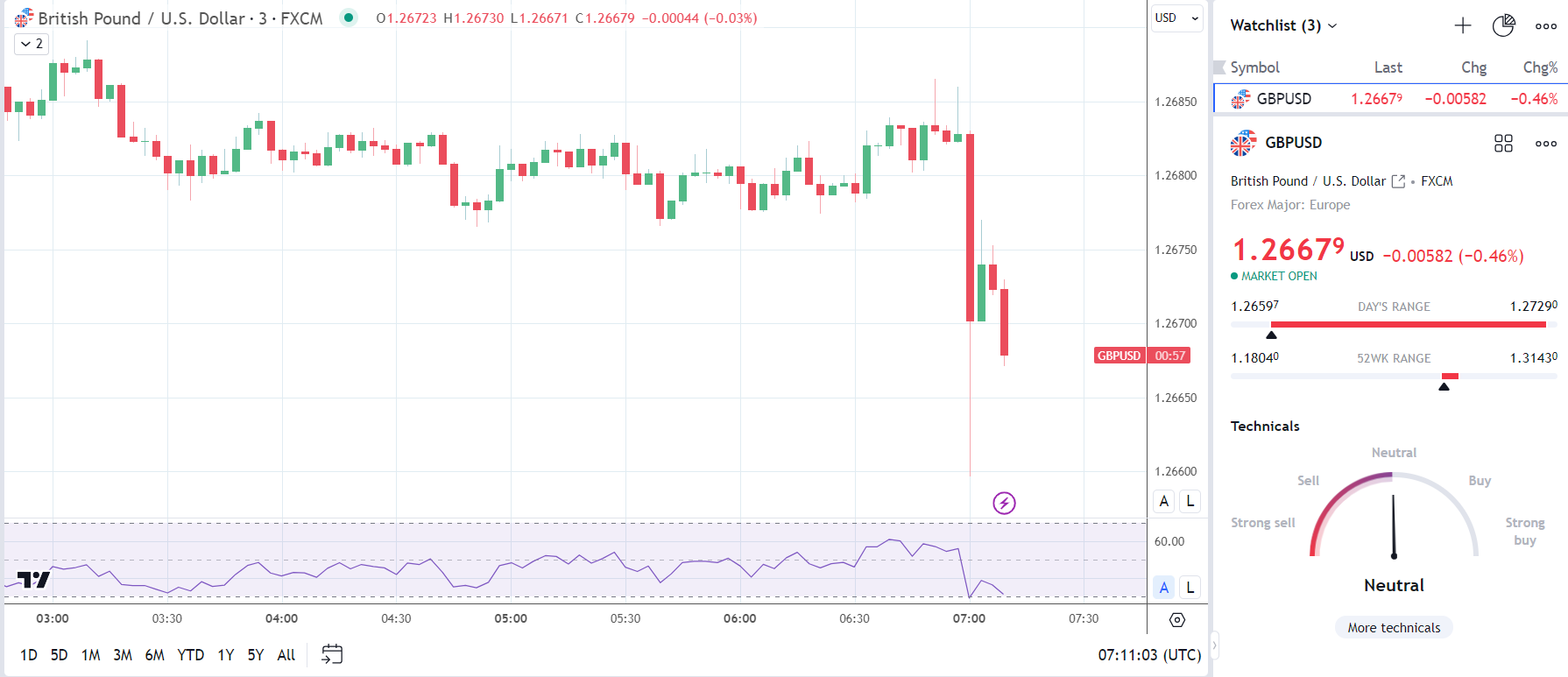
Rising pressure on the Bank of England to consider interest rate reductions is driven by the slowdown in UK wage growth, job openings, and the number of payrolled workers.
Analysis of the recent UK labor market report shows a focus on UK average earnings, employment changes, and the unemployment rate. The current softer wage growth and weakening labor market conditions may lead to a reduction in disposable income, potentially impacting consumer spending and demand-driven inflation.
Key Figures
The unexpected soft wage growth figures may prompt the Bank of England to consider rate cuts, as wage growth has been a concern. Strong wage growth has fueled consumer spending and demand-driven inflation, necessitating a more hawkish rate path.
Before the release of UK employment figures, GBP/USD reached a high of $1.27290 before dropping to a low of $1.26765. Following the data, the currency pair rose to a high of $1.26830 before falling to a low of $1.26597, ultimately closing Tuesday down by 0.46% at $1.26679.

160124 GBPUSD 3 Minute Chart
The upcoming focus will be on the NY Empire State Manufacturing Index, where positive manufacturing sector conditions could support expectations of a US soft landing. Additionally, FOMC member Christopher Waller and Bank of England Governor Andrew Bailey are scheduled to speak, with Governor Bailey testifying at the Lords Economic Affairs Committee hearing at 1500 BST.

Subscribe to our daily newsletter and get the best forex trading information and markets status updates
Trade within minutes!
Comment (0)